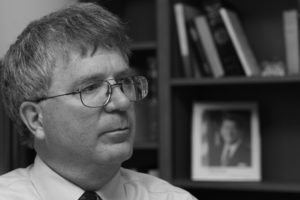Justices Confound Expectation in Colorado Wedding Cake Case
The Supreme Court today confounded all expectations, and decided the highly controversial Masterpiece Cakeshop case by a 7-2 vote. This is the case about a Colorado baker who, in accordance with his religious beliefs that marriage is properly confined to a man and a woman, declined to “design and create” a cake celebrating a same-sex wedding. The Court held that penalizing the baker for this refusal to violate his religious convictions violated the principle that the government “cannot act in a manner that passes judgment upon or presupposes the illegitimacy of religious beliefs and practices.” The Court emphasized the fact that the State of Colorado had permitted three other bakers to refuse to provide cakes that expressed sentiments opposed to same-sex marriage, condemning this disparity in treatment as demonstrating hostility to religious views.

In these days of intense culture conflict, the Supreme Court’s 7-2 majority demonstrates that concern about hostility and intolerance toward religious views is not a right-wing distraction, as some people say, but a broadly held and fundamental part of our constitutional values. The Court is to be commended for transcending its political divisions and delivering that much-needed message. It bears mention that four of the last five decisions by the Court protecting religious freedom were by unanimous or 7-2 votes, all of them against the government and all of them reversing lower court decisions.
The price of a broad majority is typically a narrow – and often a vague – opinion, and Masterpiece Cakeshop is no exception. The majority opinion, by Justice Anthony Kennedy, scrupulously avoided expressing an opinion about similar cases that might arise in “other circumstances” in the future. But no one should mistake the principle: If a state recognizes the right of “shopkeepers” to refuse service on the basis of secular principles, it cannot punish others who refuse service on the basis of religious principles. The case might be different if all bakers were required to bake all cakes expressing all ideas — but Colorado did not have such a rule. The constitutional principle recognized in this case is not of expansive freedom for religious exercise, but simply of neutrality. The principle is “narrow,” but it is supremely important.
Michael W. McConnell is the Richard and Frances Mallery Professor and Director of the Constitutional Law Center at Stanford Law School, as well as a Senior Fellow at the Hoover Institution at Stanford University. He served as a Circuit Judge on the United States Court of Appeals for the Tenth Circuit (2002-2009) before joining the faculty at Stanford.
